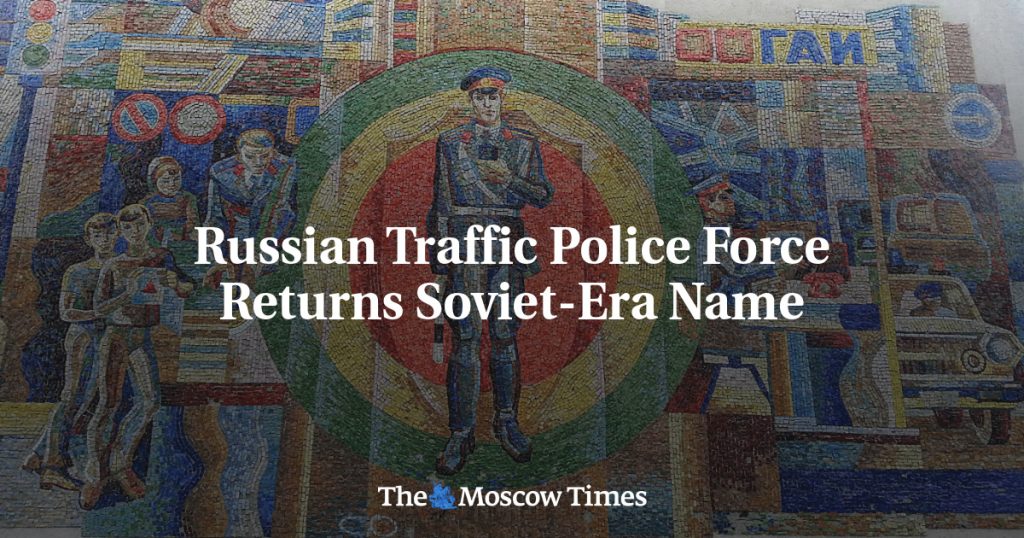Russia has decided to rename its Main Directorate for Traffic Safety (GIBDD) back to the Soviet-era State Automobile Inspectorate (GAI), as reported by the state-run TASS news agency. The head of the traffic police force, Mikhail Chernikov, announced the name change during an Interior Ministry meeting. The GAI was initially established in 1936 by Soviet authorities and had maintained that name until it was changed to GIBDD in 1998. Chernikov also hinted at a potential return to the Bolshevik-imposed name “militia” for the regular police force, replacing the current Tsarist-era “police” name that was reintroduced in 2010.
Chernikov confirmed that the traffic police name change to GAI had already taken effect, with all official documents carrying the new acronym. Politicians in Russia had been advocating for a change in the name of the traffic police force after it was switched to GIBDD in the late 1990s. Russian President Vladimir Putin, upon assuming office in 2001, expressed confusion over the renaming, stating that he did not see the reason for the change. The move to revert to the traditional name of GAI suggests a shift back to the historical roots of the traffic police force.
The decision to rename the traffic police force back to GAI reflects a broader trend of revisiting Soviet-era institutions and names in Russia. This move aligns with efforts to reestablish connections with the country’s historical past and traditions, moving away from changes made in the post-Soviet era. The potential return to the name “militia” for the regular police force also indicates a shift towards embracing Soviet-era terminology and concepts. These changes signal a nostalgic sentiment for the Soviet period and a desire to reconnect with Russia’s historical legacy.
The renaming of the traffic police force to GAI has sparked discussions and debates within Russia, with some questioning the necessity of such a change and others viewing it as a positive move towards honoring the country’s heritage. The decision to revert to the traditional name has drawn attention to the significance of historical symbols and institutions in shaping Russia’s identity and national narrative. As the country grapples with its past and seeks to define its future direction, these changes serve as symbolic gestures towards a renewed sense of pride in Russian history and culture.
The shift towards reclaiming Soviet-era names and institutions represents a broader trend in Russia towards reaffirming national identity and heritage. By renaming the traffic police force to GAI and potentially considering a return to the name “militia” for the regular police, the country is signaling a deeper commitment to its historical roots and traditions. These changes reflect a desire to preserve and honor the legacies of the past while also moving towards a future that embraces both continuity and change. As Russia navigates its complex history and grapples with its present challenges, these symbolic gestures play a role in shaping the country’s evolving narrative and self-perception.















